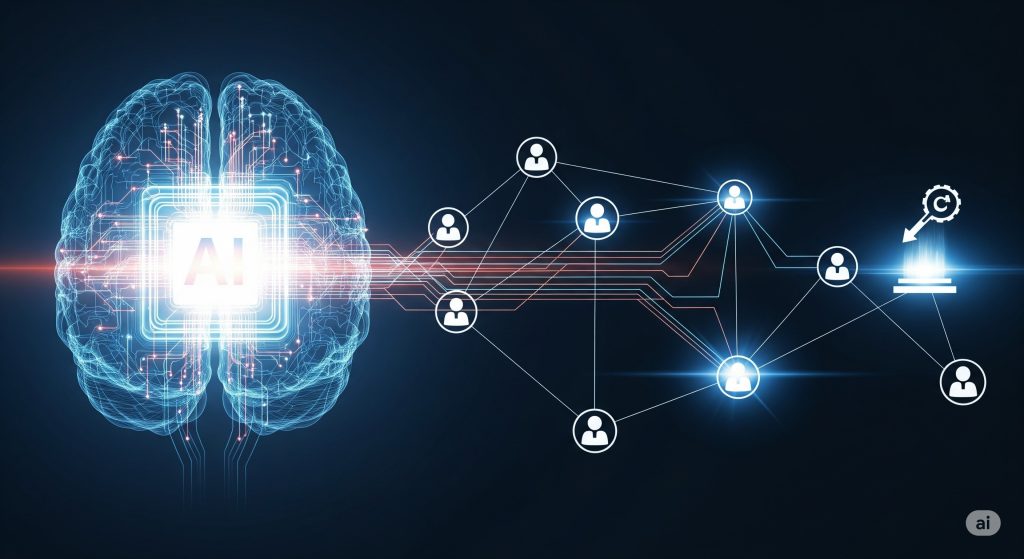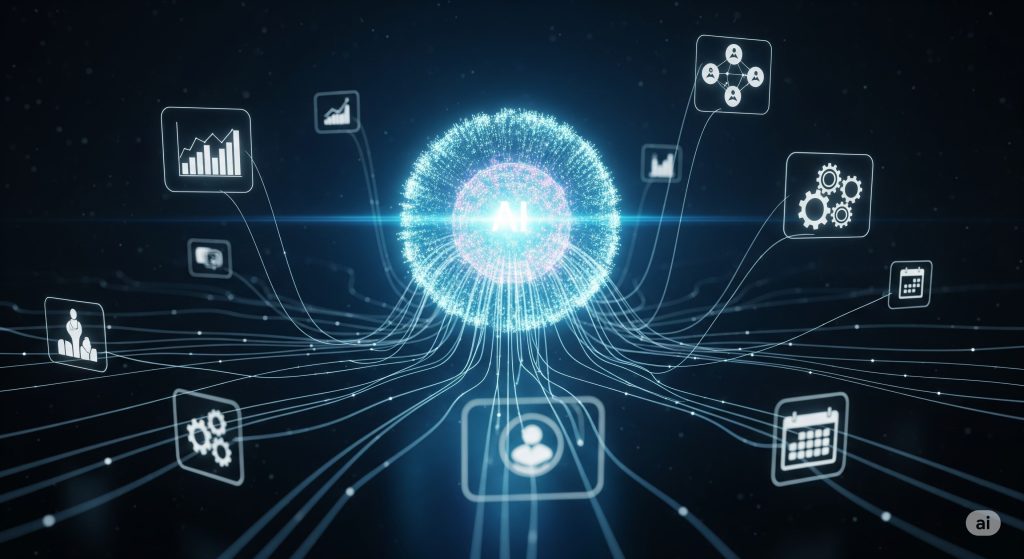Introduction: The Role of AI in Modern HR Practices
In the digital age, small and medium-sized enterprises (SMEs) face stiff competition in attracting and retaining top talent. With limited resources and a need for efficient human resource management, many SMEs are turning to artificial intelligence (AI) to revolutionize their recruitment and talent management processes. AI’s capabilities in automating and optimizing HR functions present an opportunity for SMEs to improve hiring processes, enhance candidate screening, and boost employee engagement.
The Benefits of AI in Human Resources
Integrating AI into HR operations provides numerous benefits that can help SMEs streamline their recruitment efforts and enhance overall efficiency:
1. Streamlined Hiring Processes
AI technology offers tools that can automate repetitive tasks in the recruitment process, such as:
- **Automated Resume Screening:** AI can quickly sift through thousands of resumes to identify candidates who best match the job criteria, reducing the time and effort required by HR professionals.
- **Interview Scheduling:** AI-powered chatbots can handle the initial stages of interview scheduling, coordinating with candidates and freeing HR teams to focus on strategic tasks.
2. Enhanced Candidate Screening
Predictive analytics, a facet of AI, enables HR teams to make more informed decisions when evaluating applicants. Key advantages include:
- **Analyzing Candidate Data:** AI tools can assess potential candidates’ past experiences, skills, and behavioral data to predict their suitability and potential success in specific roles.
- **Bias Reduction:** By leveraging AI, SMEs can reduce the risk of human bias in the screening process, promoting a more diverse and inclusive workplace.
3. Improved Employee Engagement
Beyond recruitment, AI enhances employee satisfaction and engagement by:
- **Personalized Learning and Development:** AI-driven platforms can recommend tailored learning resources and career development opportunities based on individual employee needs and goals.
- **Continuous Feedback Mechanisms:** Through AI-powered tools, employers can implement real-time feedback systems that help employees understand their performance and areas for improvement.
Challenges of Implementing AI in HR
Despite its multiple benefits, introducing AI into HR practices is not without its challenges. SMEs must address issues such as:
Data Bias
AI systems rely on data for decision-making, but this can introduce bias if the data used is not adequately diversified. SMEs must ensure the data fed into AI tools is comprehensive and representative to avoid perpetuating existing biases in recruitment.
Training and Change Management
Implementing AI requires HR personnel to adapt to new technologies and processes. Businesses should invest in training to equip their HR teams with the skills necessary to manage these tools effectively and ensure a smooth transition.
Conclusion: Embracing AI for HR Success
By effectively integrating AI into HR functions, SMEs can revolutionize their recruitment processes and take significant strides towards enhancing their talent management strategies. Embracing AI allows businesses to make data-driven decisions that improve hiring efficiency, reduce bias, and foster a more engaged and motivated workforce. As AI technology continues to evolve, SMEs that proactively adapt and innovate within their HR practices will be best positioned to thrive in a competitive marketplace.
Conclusion: Embracing AI for HR Success
The integration of AI into human resources represents a significant leap forward for small and medium-sized enterprises looking to optimize their HR functions. With AI, SMEs can automate repetitive tasks, enhance candidate screening processes, and improve overall employee engagement—factors crucial to nurturing a successful and responsive workforce in today’s competitive environment.
Steps for Successful AI Integration in HR
To maximize the benefits of AI in HR, SMEs should consider the following strategies:
Embrace a Change-Ready Culture
Fostering a workplace culture that is open to technological advancements is vital. Encouraging a mindset that values innovation and adaptation will help ensure the successful adoption of AI in HR.
Invest in Training and Development
Providing HR personnel with the necessary training will enable them to effectively utilize AI tools and interpret data-driven insights. This investment will create a more skilled HR team capable of leveraging AI technology to its full potential.
Maintain a Balanced Approach
While AI can automate numerous HR tasks, maintaining a balance between technology and human interaction is crucial. Personal engagement should remain a core element of HR practices to foster strong, enduring relationships with employees.
Looking to the Future
As artificial intelligence continues to advance, its role in shaping HR practices within SMEs will only become more pronounced. Businesses that proactively embrace AI innovations and develop their capabilities accordingly will be better equipped to attract, retain, and nurture talent in an ever-evolving market landscape.
Ultimately, the key to long-term success lies in the ability of SMEs to not only adopt AI technology but also harness its insights to inform strategic decision-making. By doing so, organizations can build a more resilient and dynamic workforce, ready to meet the challenges and opportunities of the future.



